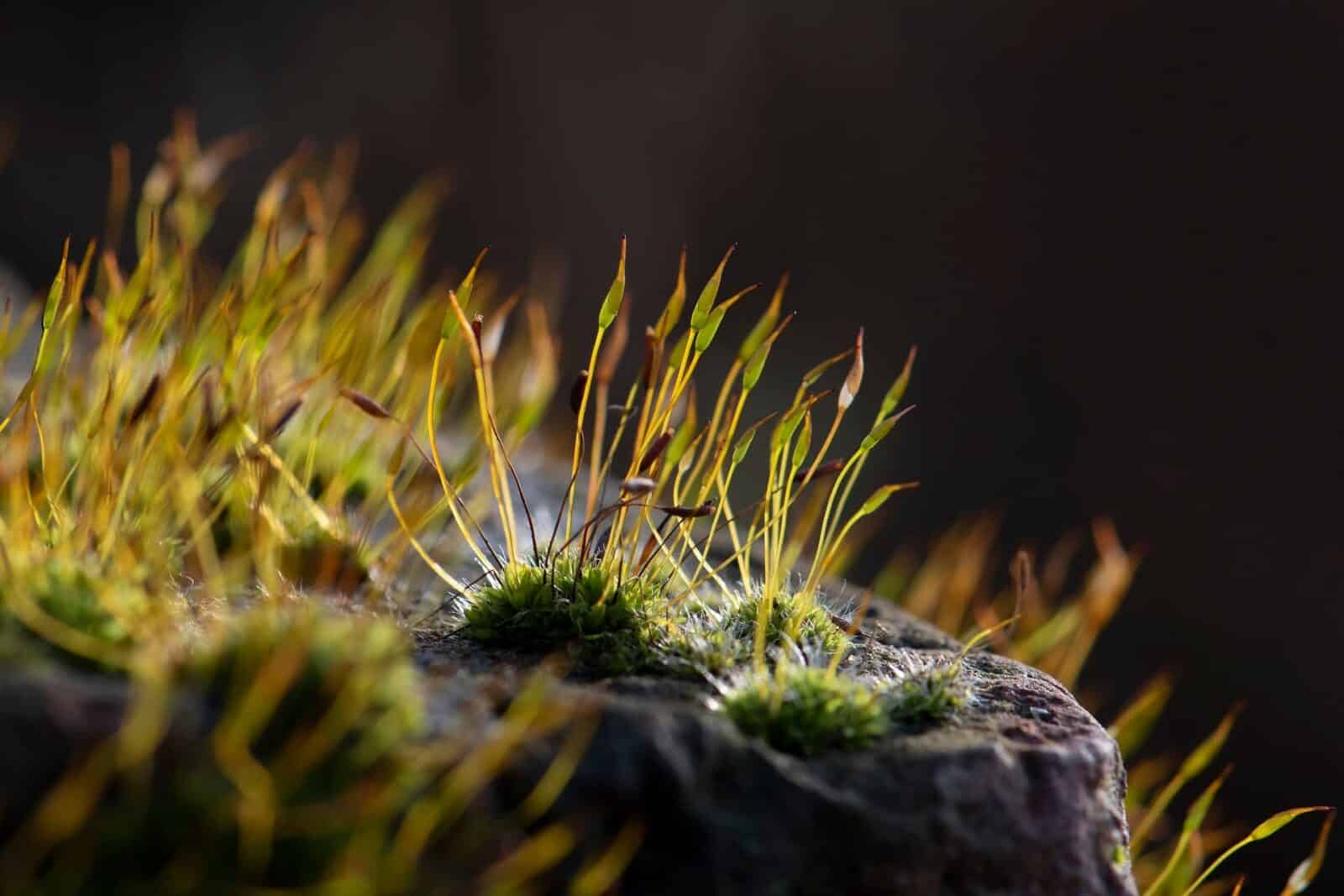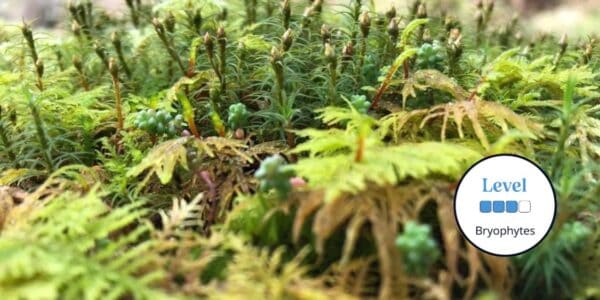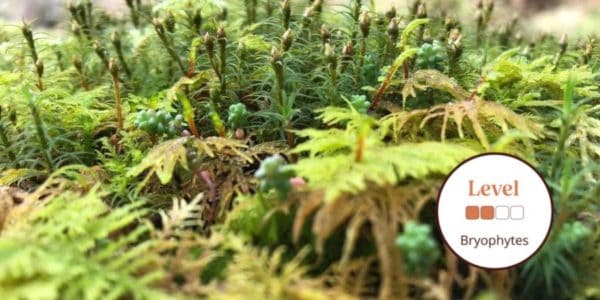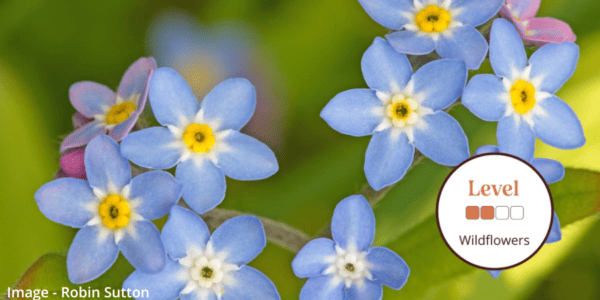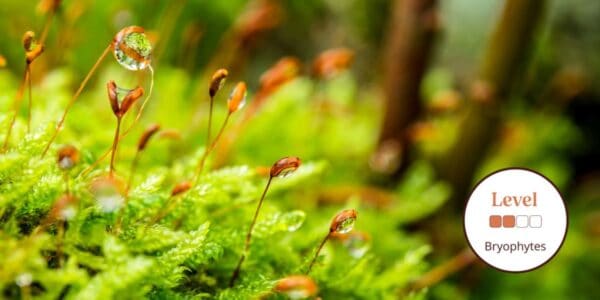This beginner course will give you a brief introduction to mosses and what to look for in the field, followed by a short field visit on foot from the course location to collect samples. Observe their key features and practice the basics of identification using keys.
This course will make use of classroom-based learning, fieldwork, and identification in the lab including microscope work.
This course will cover:
- How to recognise basic groups i.e. mosses and liverworts
- The different growth forms
- Features to use in identification
- How to use a key
- Where and how to look through fieldwork
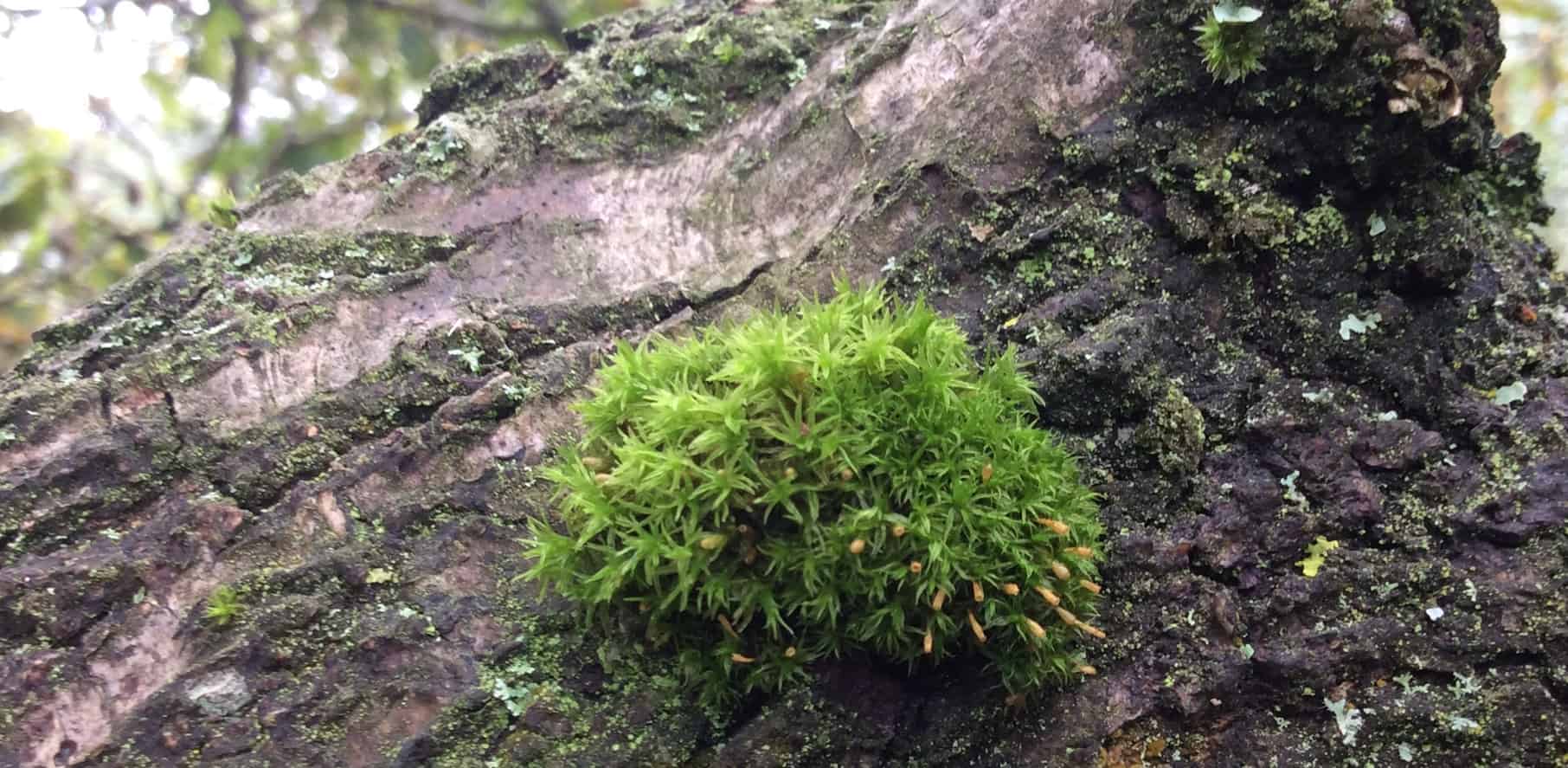
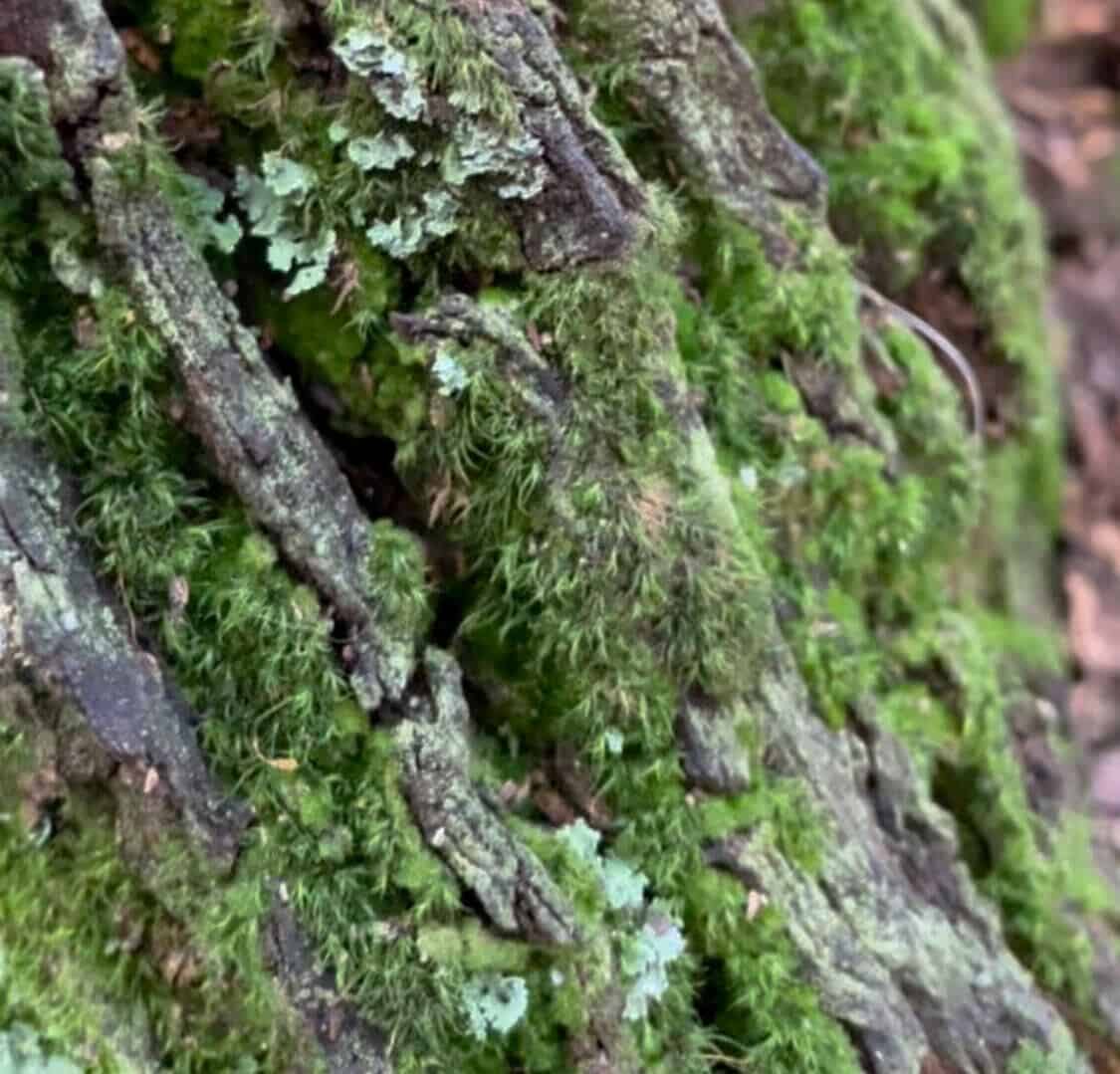
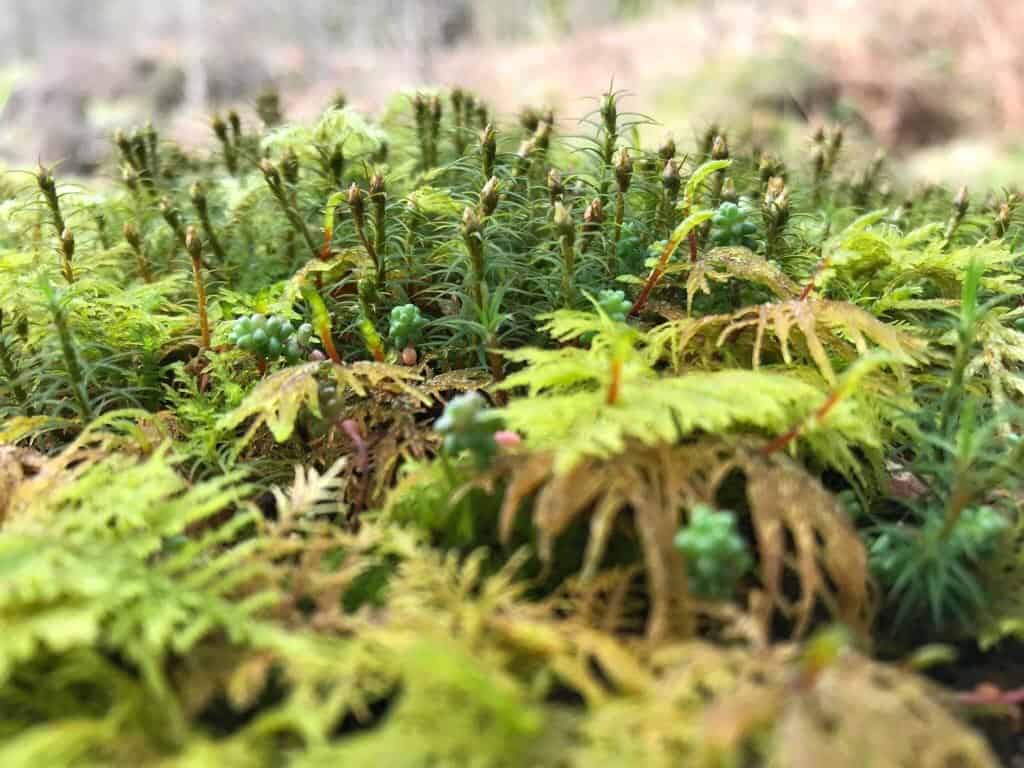
Read More
Mosses are a comparatively neglected group but they have much to offer, being at their best in winter, and are sensitive to soil and habitat conditions. Each habitat has its own range of species.
By the end of the course, you will:
- Have some experience of different mosses.
- Have experience of what to look for in the field.
- Have used hand lenses and keys for identification.
- Have practiced using the name as a key to find out more about ecology of each species. There will be leads for taking the interest further.
Who Should Attend? – Anyone interested in starting mosses including amateur naturalists, biological recorders, and educators.
Knowledge Level – Beginner. Level descriptors can be found on the following web-page: Framework and Course Level Descriptors
Prior Knowledge – No existing knowledge or experience is needed for this course, just a willingness to explore and learn.
PLEASE NOTE: There is no accommodation, refreshments, or meal facilities included in the course price. If we are unable to reach viable numbers for this course, we will inform you of the course cancellation 4-5 weeks prior to the course run. We would recommend when purchasing accommodation and/or travel you should take out your own insurance.
Bookings will close if course capacity is reached.
Please email [email protected] if you have any questions.
About the Tutor
June Chatfield
June Chatfield has a broad interest in natural history and has long been fascinated by Mosses, Liverworts and fungi. She has run a popular Moss and Liverwort course at Margam Park and Juniper Hall in 2022. Her career has involved college lecturing, museum curation and biological recording.
Example Timetable
Example Timetable
This timetable is subject to change but should give a clear outline of what to expect.
- Please arrive in time for the course to start promptly at 10:00
- The course will end at 17:00
10.00 Introducing mosses and student requirements
11.00 Break - refreshments not provided
11.20 Field work close to the Centre
12.30 Lunch break - not provided
1.30 Practical identification and use of key from material collected
3.00 Break - refreshments not provided
3.30 Assemble spreadsheet of finds and discuss ecology
Further work in lab with microscopes
4.30 Detail on taking your interest further
5:00 Course finish
Please note accommodation, refreshments, and an evening meal are not included in the course price.
What's Included
The course has been carefully created by expert tutors and educators to help you build your knowledge and apply it within the field surrounded by like-minded individuals.
The course includes:
- Classroom learning covering the theory of the species
- Field excursions to apply new knowledge
- Expert tuition for which the Field Studies Council is renowned
- Clear objectives and progression
You can rest assured that the absolute best content from an expert in environmental education will be provided. In choosing a Field Studies Council course, you will be joining thousands of people who learn with us each year.
Bursaries and Subsidies
Student Discount
This course is eligible for a student discount. If you are a current student, please use discount code BioStudent20 at checkout for 20% off all Biodiversity courses.
Natural History Bursaries
There are a number of natural history bursaries available to help with the cost of your course. To find out if you and your chosen course are eligible, read more here.
Before You Attend
What to Bring
- Notebook and pencil
- Lunch and refreshments
- Sensible footwear and clothing for being outdoors
- Small bag to carry personal items
- If you have one, bring x10 hand lens
Recommended Literature
- Field Studies Council Wildlife Foldout Charts: Woodland Mosses and Garden Mosses
- The more advanced and complete field guide is 'Field Guide to Mosses and Liverworts' by Ian Atherton, obtainable at £30 from [email protected]
- There is also 'How to begin the Study of Mosses & Liverworts' by June Chatfield published by British Naturalists’ Association at £9.95, free postage from bna-naturalists.org.uk
There will be a member of staff with first aid training and access to a first aid kit on site. If you have special medical or access requirements, please let us know as soon as possible so we can plan the course.
Opportunities to attend this course
This course is not currently available to book. Dates will follow soon.
Sign up to our Email Newsletter
Progress Your Learning
This is a training course from the Field Studies Council, delivered by expert tutors with an approachable learning style. After attending this course, you may like to progress your learning with further relevant courses or branch out into other areas of natural history. The Field Studies Council offers both online and in person courses, so you can choose the learning style that suits you best.
The course gives you the opportunity to immerse yourself in a new subject and acquire novel skills. Our online portal gives you time to study at your own pace and fit the lessons around your own schedule.
If you have any questions about our courses please check our Frequently Asked Questions or email [email protected].
Group Bookings Made Easy
If you have a group of 10 or more individuals wanting to complete one of our courses, our team are available to discuss your options – from discounts to private team courses. Find out more!
You can rest assured that the absolute best content from an expert in environmental education will be at your fingertips. In choosing a Field Studies Council course, you will be joining thousands of people who learn with us each year.

